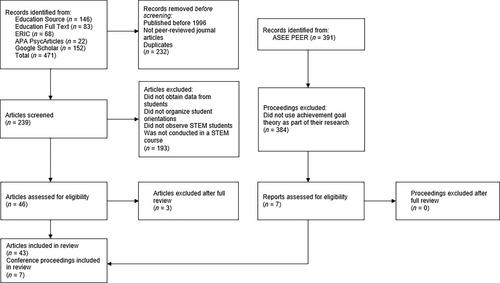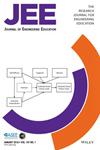Achievement goal theory is a popular motivational theory within education and psychology, with several review papers summarizing the extensive work done in these fields. Although reviews exist in these specific fields, none exists within science, technology, engineering, and mathematics (STEM) education. This is a considerable gap in our knowledge as STEM educators, especially engineering educators, where motivation is often ill-defined.
This paper highlights the findings of a systematic review of how STEM educators have used achievement goal theory within undergraduate STEM education.
We followed the Preferred Reporting Items for Systematic Reviews and Meta-Analyses (PRISMA) 2020 checklist for our search. A total of 50 studies (43 journal articles and 7 conference proceedings) were included in our review.
Our review revealed five common themes: quantitative methodologies, sex, emotions, academic achievement, and culture. A majority of the papers reviewed used quantitative methods. Although there was inconclusive evidence of differences in motivational orientations based on biological sex, the most studied emotion (anxiety) was found to be inversely correlated with mastery orientations. Among the many ways to measure academic achievement, exam scores was the most popular method reported. Lastly, ethnic, institutional, and department cultures were significant factors in shaping a student's motivational orientation.
Our review suggests that a motivational difference between students based on biological sex is inconclusive. We also recommend more studies that use qualitative or mixed methodologies to gain further insight into students' motivational processes and consider how cultural contexts may impact students' motivational orientations.



